Treatment of Female Infertility by In Vitro Fertilization (ivf) in Israel
Treatment prices are regulated by national law of the corresponding countries, but can also include additional hospital coefficients. In order to receive the individual cost calculation, please send us the request and medical records.
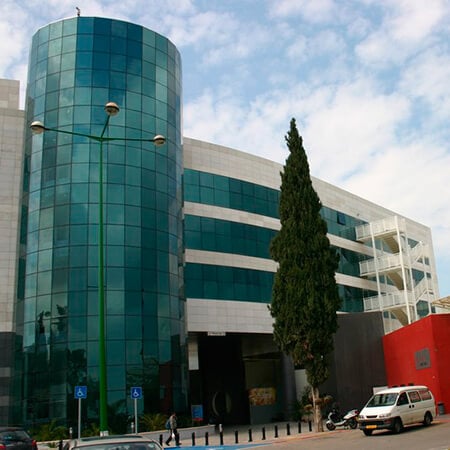
Department of Reproductive Medicine
The Department of Reproductive Medicine offers the full range of modern treatment methods for infertility in men and women, including the most advanced ones, which are available only in a few medical centers around the world. The medical facility was founded in 1986 and became one of the first in its field of competence in Israel. The department has several laboratory units for the introduction of sperm into the egg, which allows the doctors to deal with especially complex cases using several microscopes simultaneously. In addition, the department has a laboratory with state-of-the-art equipment, such as incubators with reduced oxygen concentration for achievement of optimal results. Recently, the department has begun using incubators of a new generation – desk incubators with small openings and a stable, persistent gas concentration.
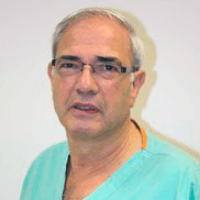
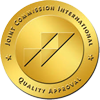

Department of Reproductive Medicine
The Department of Reproductive Medicine offers the full range of assisted reproductive technologies for the treatment of female and male infertility. The department is annually visited by more than 1,300 couples, while most of them receive the long-awaited opportunity to be parents. The department specializes in in vitro fertilization (IVF), which is currently one of the most effective assisted reproductive technologies. The fertility doctors also perform procedures for fertility preservation in patients undergoing cancer treatment. The department demonstrates high success rates in fertility treatment, which compete with the best reproductive clinics in the world.
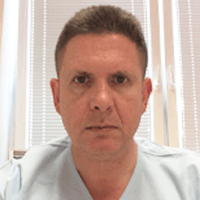

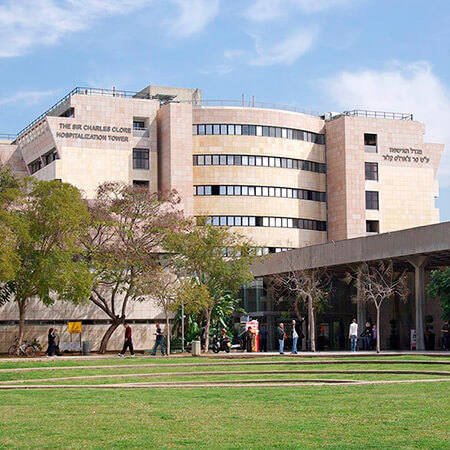
Department of Reproductive Medicine
The Department of Reproductive Medicine ensures high quality of all modern procedures for fertility treatment. One of the most popular methods for conception of a long-awaited pregnancy is in vitro fertilization (IVF). The department's specialists first performed the IVF procedure in 1982 and since then they have been successfully practicing it for couples who cannot conceive a child naturally. As of today, the department performs more than 1,000 IVF procedures annually, while the treatment success rates are one of the best in the world. During the therapeutic process, the patients are provided with maximum comfort, confidentiality and the highest quality of medical services.



The in vitro fertilization is the most effective method of overcoming infertility. It involves fertilization of the egg in vitro, growing the embryo during 3-6 days, followed by transfer of an embryo to the uterus. The IVF procedure can be performed in one of the medical centers in Israel. Israeli healthcare professionals take care about efficacy of medical services and patient’s comfort during all manipulations.
Who can undergo IVF?
IVF is mostly performed to treat female infertility, although in vitro fertilization can also have other indications.
Infertility is the absence of pregnancy in a couple who makes unsuccessful attempts to conceive a child for 12 consecutive months. Spouses with impaired fertility undergo diagnostic examination. If a man's spermogram is normal, it is concluded that the woman suffers from infertility. Female infertility is twice as common as a male one.
IVF is the most effective method to overcome most types of infertility successfully. However, the procedure has a high price. Therefore, in case of impaired fertility in women, the IVF procedure is usually not used as a first-line treatment. Doctors try to overcome infertility with the help of conservative treatments. If necessary, doctors think about surgical operations.
The in vitro fertilization is indicated in the following cases:
- Fallopian tube obstruction or absence of the fallopian tubes
- Concomitant male factor infertility (decreased fertility in the spouse)
- Any types of female infertility, if treatment with other methods did not bring results within 12 months
- Lack of effect of treatment for 6 months, if the woman is more than 35 years old
- Any types of infertility, if the probability of pregnancy after IVF is higher than when using other treatments
How is IVF performed in Israel?
Medical centers perform the in vitro fertilization differently. This is not a single specific medical procedure, but the whole range of manipulations that can be used in different combinations.
Here are some of the main stages of the standard IVF procedure:
1. Superovulation induction. The woman takes medications that stimulate the maturation of many follicles with eggs in the ovaries. The schemes are selected individually. The follicle growth is monitored in dynamics using ultrasound scanning.
2. Follicular puncture. A doctor punctures the follicles and sucks out the fluid with eggs from them under short-term general anesthesia.
3. Fertilization. The eggs are mixed with the spouse's sperm so that they fertilize in laboratory conditions. If there are few oocytes, or the quality of sperm is low, doctors in Israeli medical centers perform the ICSI procedure. A doctor selects the morphologically correct spermatozoa and injects them into the egg. This medical procedure guarantees successful fertilization with a probability of more than 90%.
4. Embryo culture. It is carried out on culture media that simulates the conditions of the female body. Embryos are cultured for 3-6 days.
5. Embryo transfer. It is a simple, quick and painless procedure. A doctor uses a catheter to inject fluid with embryos into the woman’s uterus through the vagina and cervical canal.
Can the procedure cause any complications?
IVF is one of the most effective and at the same time safe procedures. Although it does not restore woman’s natural fertility, it allows a woman to become pregnant, despite the existing problems with reproductive health. For many patients, IVF is the only opportunity to have children.
At the same time, many women fear complications from using drugs or invasive procedures. Indeed, complications can sometimes occur. But in good clinics, they are very rare.
The most common complication of IVF is ovarian hyperstimulation syndrome. It develops from an extremely violent reaction of the ovaries to the drugs used. In Israeli clinics, this complication is rare for a number of reasons:
- Comprehensive diagnostics, which allows predicticting the ovarian response to induction and, if necessary, reducing the dose of drugs
- Taking into account the experience of previous IVF (a doctor assesses how the ovaries have responded to induction before)
- Monitoring the results of ovarian induction in dynamics, if necessary, a doctor can reduce the dose after the start of the protocol, or even interrupt the cycle
As a rule, ovarian hyperstimulation syndrome is mild. A moderate and severe course occurs if the complication develops against the background of pregnancy. However, such cases in Israel are almost excluded. If a doctor sees that the risk of hyperstimulation is high, he will not perform embryo transfer so that a woman does not become pregnant. Instead, the embryos are frozen and transferred in the next cycle, when there is no thread for health of the woman.
Pregnancy after IVF
2 weeks after embryo transfer, you can get a positive pregnancy test or confirm its onset by a beta HCG test. 3-4 weeks later, the fetal egg can be imagined using an ultrasound scan, and afterwards the heartbeat can be fixed.
IVF can more often be connected with spontaneous abortions as compared to a natural pregnancy. This is not due to the procedure itself, but to the contingent of women who undergo fertility treatment. IVF is mostly performed after the age of 35 years. Patients have fertility disorders and concomitant somatic disorders that increase the risk of miscarriage.
In Israel, all women are provided with drug support for early pregnancy. The drugs are used for 12 weeks. The use of drugs eliminates the second most common cause of spontaneous abortion – luteal phase defect.
Women after 35 years of age, as well as young patients who have a history of miscarriages, are recommended a preimplantation genetic diagnosis procedure. It slightly increases the cost of IVF. On the other hand, the embryologists check the chromosome set of embryos, detect genetic disorders. Doctors select an embryo without mutations for transfer. This results in the following:
- Increased likelihood of pregnancy
- Reduced risk of miscarriage (genetic failure of the embryo is the most common cause of a spontaneous abortion)
- Reduced risk of developmental anomalies and congenital genetic diseases in a child
- Reduced risk of complicated pregnancy
- Reduced risk of complications during childbirth
Contrary to popular belief, in most cases, children after IVF are born completely healthy. They do not have congenital malformations, develop well physically and mentally, and can have their own children.
Why is it better to perform IVF in Israel?
In Israeli medical clinics, you can undergo artificial fertilization at an affordable price, with high chances of pregnancy. In the best hospitals, the probability of success at the first attempt among women under 38 reaches 50-60%.
The cost of IVF treatment in Israel is lower than in developed Western countries. Therefore, many women come to this country to save on treatment. Given the high effectiveness of IVF in the best hospitals, the price of treatment is further reduced due to the high probability of pregnancy. Sooner you become pregnant, fewer IVF attempts will be required. Accordingly, the total cost of fertility treatment will be lower.
Here are some of the main benefits of artificial fertilization in Israeli hospitals:
Individual selection of IVF protocol. It is carried out after the thorough diagnostics, analysis of previous IVF attempts. Doctors select both medicines and doses that allow for the maturation of the maximum number of eggs with minimal risk of ovarian hyperstimulation syndrome. A doctor carefully monitors the induced cycle and, if necessary, can adjust the scheme of drug use.
Sparing schemes and IVF in the natural cycle. These are used in older women. These benefits allow reducing the cost of the procedure and get better eggs for transfer, albeit in smaller quantities. To increase the likelihood of pregnancy, doctors can use assisted hatching, preimplantation genetic diagnosis and genetic screening. In the best clinics in Israel, even women after 40 years of age achieve good results in fertility treatment.
Well-equipped embryology laboratories. Israeli hospitals use the very latest in vitro fertilization methods, including ICSI, IMSI, PICSI. The modern equipment and high-quality embryological environments, a high level of training of embryologists and a good organization of laboratory work are the factors that all allow getting the best quality embryos, the transfer of which is highly likely to result in pregnancy.
Selective transfer of one embryo. In most women only one embryo is transferred. This approach avoids multiple pregnancy, which is often connected with complications. The transfer of 2 embryos can be performed only in aged women. Even with this approach, the likelihood of pregnancy remains high. The specialists at Israeli hospitals achieve good treatment results due to the quality, but not the number of transferred embryos.
Where to seek help from?
To undergo IVF treatment in one of the Israeli hospitals, you can use the Booking Health service. On our portal you can get information about the main clinics for reproductive medicine, clarify the cost, compare prices. You can book the right program at the best price. Booking Health specialists will help you decide on a hospital and arrange your trip abroad. We offer the following services and benefits:
- Selection of the hospital in Israel, which specializes in the in vitro fertilization and achieves the best results in the treatment of female infertility
- Selection of the most suitable dates for IVF treatment in Israel
- Reduced cost of IVF treatment in Israel – the price is reduced due to excluding additional coefficients for foreign patients
- Direct communication with a doctor
- Elaboration of a medical treatment program in the Israeli hospital without repeating previously performed diagnostic tests
- Buying and forwarding medicines
- Communication with the hospital after the completion of the medical program
- Organization of additional diagnostics, treatment or rehabilitation
Booking Health specialists provide high-quality services. We will take care about booking a hotel and airline tickets for you, meet you at the airport and take to the hospital by car.

